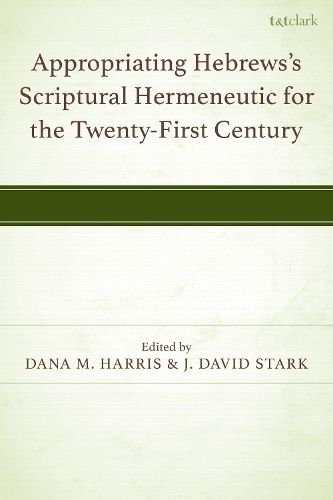Readings Newsletter
Become a Readings Member to make your shopping experience even easier.
Sign in or sign up for free!
You’re not far away from qualifying for FREE standard shipping within Australia
You’ve qualified for FREE standard shipping within Australia
The cart is loading…






Twenty-first-century readers cannot interpret Israel's Scriptures identically to how the author of Hebrews did. The contours of twenty-first century worldviews are too different. That said, Hebrews invites those who "read after" it (in time) also to "reading after" it (in approach). For those who accept this invitation, this volume's essays surface four clusters in the overall mosaic of Hebrews's approach to Israel's Scriptures. First, Hebrews explicitly, if briefly and partially, states its hermeneutic orientation to Israel's Scriptures. Second, Hebrews understands history through the proclamation that the author accepts and commends about Jesus. Third, this proclamation creates numerous other implications that Hebrews may or may not explicitly state but that nonetheless shape how the author interprets his Scriptures. And fourth, Hebrews's exhortation fosters faithfulness in its audience through both encouragements and warnings drawn from Israel's Scriptures. Attention to Israel's Scriptures in light of these clusters helps readers to understand these Scriptures not identically to Hebrews's author but in the same way as that author-namely, in the way marked out by Jesus for those who would "come after" him.
$9.00 standard shipping within Australia
FREE standard shipping within Australia for orders over $100.00
Express & International shipping calculated at checkout
Stock availability can be subject to change without notice. We recommend calling the shop or contacting our online team to check availability of low stock items. Please see our Shopping Online page for more details.
Twenty-first-century readers cannot interpret Israel's Scriptures identically to how the author of Hebrews did. The contours of twenty-first century worldviews are too different. That said, Hebrews invites those who "read after" it (in time) also to "reading after" it (in approach). For those who accept this invitation, this volume's essays surface four clusters in the overall mosaic of Hebrews's approach to Israel's Scriptures. First, Hebrews explicitly, if briefly and partially, states its hermeneutic orientation to Israel's Scriptures. Second, Hebrews understands history through the proclamation that the author accepts and commends about Jesus. Third, this proclamation creates numerous other implications that Hebrews may or may not explicitly state but that nonetheless shape how the author interprets his Scriptures. And fourth, Hebrews's exhortation fosters faithfulness in its audience through both encouragements and warnings drawn from Israel's Scriptures. Attention to Israel's Scriptures in light of these clusters helps readers to understand these Scriptures not identically to Hebrews's author but in the same way as that author-namely, in the way marked out by Jesus for those who would "come after" him.